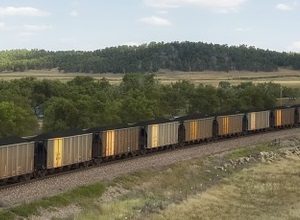 National Grid, fresh from announcing a long term low in capacity margins for the coming winter has highlighted the expectation that coal will be playing a more prominent role in power generation over the coming season.
National Grid, fresh from announcing a long term low in capacity margins for the coming winter has highlighted the expectation that coal will be playing a more prominent role in power generation over the coming season.
In the year to date, gas-fired power stations have dominated the generation landscape however the rising cost of gas relative to falling coal prices is forecast to mean a greater call on coal as the generation source of choice.
Indeed this is a reversion to the norm with gas becoming profitable relative to coal for the first time in a long while as the mild 2013/14 winter led to buoyant storage reserves, coupled with strong LNG imports and market dynamics driving down the price relative to coal.
Coal prices fell by 8% in the year to September 2014 with gas prices in comparison falling as much as 20% thereby leading to generators swapping out of coal and into gas-fired stations.
National Grid has said however that they expected that as gas prices rose underpinned by market dynamics that coal would come back into play:
“For gas and coal to be equitable the gas price for winter 2014/15 needs to fall by approximately 20p/therm (from the current forward prices) to around 40p/therm, alternatively there needs to be a further increase in the coal price by about $50/tonne”
Looking far beyond Winter 2014/15, the International Energy Agency (IEA) has forecast that European demand for gas is likely to remain at its current relatively weak levels until 2030. Fatih Birol said:
“Current European gas consumption is back at where we were 15 years ago. I don’t see a bright picture for Europe’s natural gas sector.”
In 2010, the annual demand for gas was over 500bn cubic metres however by 2013 this demand had fallen to 448bn and is expected in 2014 to fall as low as 420bn.
The IEA highlighted the weakened European economies still at various stages of recovery from the financial crisis, the increased proliferation of renewable generation and the slump in coal prices relative to gas as key factors in driving weak gas demand.
However Birol countered that the on-going shift in energy policy away from nuclear could enable gas to fill the resultant gaps and re-establish its market position. Birol said:
“Nuclear energy is facing serious problems in Europe. A big chunk of existing nuclear plants are going to be retired in the next 20 years. There may be room for natural gas to fill [the gap] if price is competitive”.
